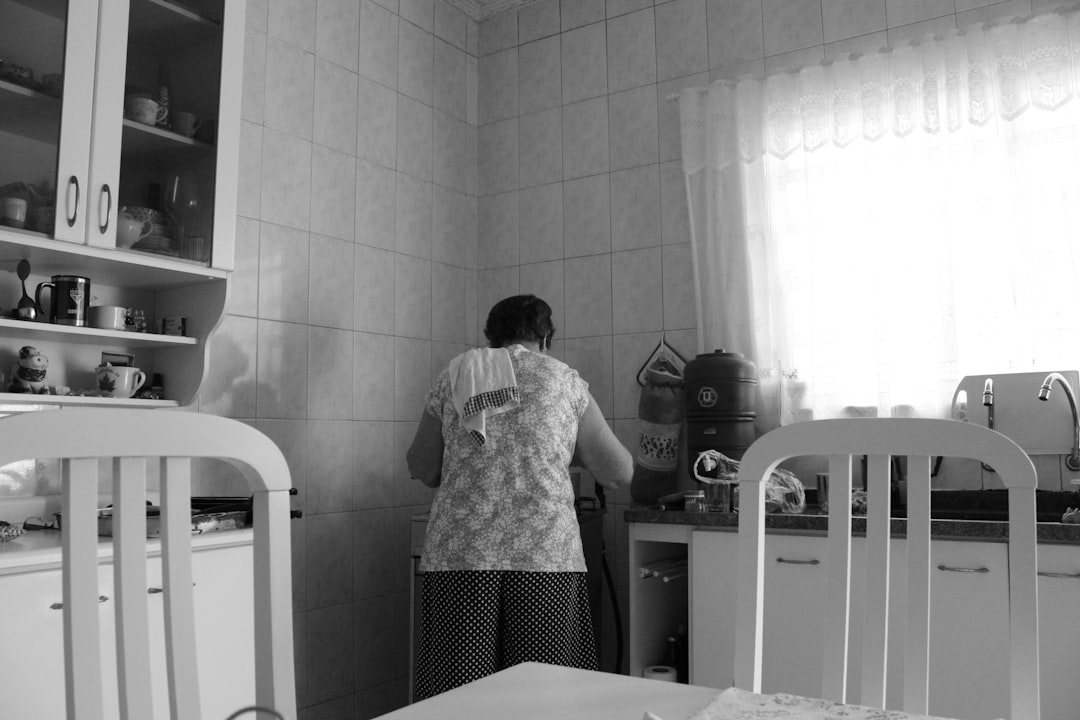When you think about nursing homes, the quality of care provided is likely one of the first aspects that come to mind. These facilities are designed to offer a safe and supportive environment for individuals who can no longer live independently due to age, illness, or disability. However, the quality of care in nursing homes has become a pressing concern in recent years.
The reality is that the quality of care can vary significantly from one facility to another, influenced by a multitude of factors. Understanding the intricacies of nursing home care is essential for anyone considering these options for their loved ones.
Quality care encompasses not only the physical health of residents but also their emotional and psychological well-being. It involves a holistic approach that prioritizes dignity, respect, and individual needs. As you delve deeper into this topic, you will discover that various elements contribute to the overall quality of care in nursing homes, and addressing these issues is crucial for improving the lives of residents.
Key Takeaways
- Nursing home quality of care has declined due to multiple systemic issues.
- Staffing shortages, high turnover, and insufficient training critically impact care standards.
- Financial constraints and budget cuts exacerbate challenges in maintaining quality.
- COVID-19 significantly worsened conditions, highlighting regulatory and oversight gaps.
- Implementing targeted strategies is essential to improve resident health and uphold ethical care.
Factors Contributing to the Decline in Nursing Home Quality of Care
Several factors have contributed to the decline in nursing home quality over the years. One significant issue is the increasing demand for long-term care services, which has outpaced the available resources. As the population ages, more individuals require assistance with daily activities, leading to overcrowded facilities and strained resources.
This surge in demand often results in compromised care, as staff members struggle to meet the needs of all residents adequately. Another contributing factor is the changing landscape of healthcare policies and regulations. In recent years, many nursing homes have faced budget cuts and reduced funding from government programs.
These financial constraints can lead to a decrease in staff numbers, inadequate training, and limited access to essential resources. As you explore these factors further, it becomes evident that a multifaceted approach is necessary to address the decline in nursing home quality effectively.
Staffing Shortages and High Turnover Rates

One of the most pressing issues affecting nursing home quality is staffing shortages coupled with high turnover rates. When you consider that consistent and compassionate care is vital for residents’ well-being, it becomes clear how detrimental these shortages can be. Many facilities struggle to maintain adequate staffing levels, leading to overworked employees who may not be able to provide the attention each resident requires.
This situation can create a cycle of burnout among staff members, further exacerbating turnover rates. High turnover rates can have a profound impact on the quality of care provided in nursing homes. When staff members frequently change, residents may not receive the continuity of care they need to thrive.
Familiarity with individual preferences and medical histories is crucial for effective caregiving, and constant staff changes can disrupt this essential relationship. As you reflect on this issue, consider how investing in staff retention strategies could lead to improved outcomes for both employees and residents alike.
Lack of Proper Training and Education for Staff
| Metric | Description | Impact | Example Value |
|---|---|---|---|
| Training Hours per Employee | Average number of hours spent on training per employee annually | Low hours indicate insufficient training | 8 hours/year |
| Staff Competency Score | Assessment score measuring staff knowledge and skills | Lower scores reflect lack of proper education | 65% |
| Employee Turnover Rate | Percentage of staff leaving due to dissatisfaction or lack of growth | Higher turnover linked to poor training | 22% |
| Error Rate in Task Execution | Frequency of mistakes made by staff during job tasks | Higher error rates suggest inadequate training | 15 errors per 100 tasks |
| Training Program Completion Rate | Percentage of staff completing assigned training modules | Low completion rates indicate engagement issues | 70% |
| Employee Satisfaction with Training | Survey score reflecting staff satisfaction with training quality | Lower satisfaction can reduce motivation and performance | 3.2 out of 5 |
In addition to staffing shortages, a lack of proper training and education for nursing home staff significantly contributes to declining quality of care. Many employees enter the field with minimal training or experience, which can hinder their ability to provide effective care. When you think about the complexities involved in caring for elderly individuals with diverse needs, it becomes evident that comprehensive training is essential for ensuring high-quality care.
Moreover, ongoing education is crucial in keeping staff updated on best practices and emerging trends in geriatric care. Without access to continuous learning opportunities, employees may struggle to adapt to new challenges or implement innovative approaches to caregiving. As you consider potential solutions, think about how investing in training programs could empower staff members and ultimately enhance the quality of care provided in nursing homes.
Financial Strain and Budget Cuts
Financial strain and budget cuts have become increasingly common in nursing homes, further complicating efforts to provide high-quality care. Many facilities rely heavily on government funding and reimbursement programs, which have faced significant reductions in recent years. When you examine the financial landscape of nursing homes, it becomes clear that these budget cuts can lead to difficult decisions regarding staffing levels, resources, and overall care quality.
As facilities grapple with limited budgets, they may be forced to make compromises that directly impact residents’ well-being. For instance, reduced funding may result in fewer staff members available to assist residents with daily activities or provide necessary medical attention. Additionally, budget constraints can limit access to essential supplies and equipment needed for effective care.
As you reflect on this issue, consider how advocating for increased funding and support for nursing homes could lead to improved outcomes for residents.
Impact of COVID-19 on Nursing Home Quality of Care

The COVID-19 pandemic has had a profound impact on nursing home quality of care, exposing vulnerabilities within the system that many were previously unaware of. As you think about the challenges faced by these facilities during the pandemic, consider how isolation measures and infection control protocols affected residents’ mental health and overall well-being. Many individuals experienced prolonged periods without family visits or social interaction, leading to feelings of loneliness and despair.
Furthermore, the pandemic highlighted existing staffing shortages and resource limitations within nursing homes. With many employees falling ill or needing to quarantine, facilities struggled to maintain adequate staffing levels during a time when residents required heightened attention and care. As you explore this topic further, it becomes evident that addressing the lessons learned from the pandemic is crucial for improving nursing home quality moving forward.
Inadequate Oversight and Regulation
Inadequate oversight and regulation have also played a role in the decline of nursing home quality of care. While there are regulatory bodies responsible for monitoring facilities and ensuring compliance with standards, many advocates argue that current oversight mechanisms are insufficient. When you consider the complexities involved in regulating nursing homes, it becomes clear that more robust systems are needed to hold facilities accountable for their practices.
Moreover, inconsistent enforcement of regulations can lead to disparities in care quality across different facilities. Some nursing homes may prioritize compliance with regulations while others may cut corners or neglect essential standards altogether. As you reflect on this issue, think about how advocating for stronger oversight measures could help ensure that all residents receive the high-quality care they deserve.
Effects on Resident Health and Well-being
The decline in nursing home quality of care has significant effects on resident health and well-being. When you consider that many individuals residing in these facilities are already dealing with complex medical conditions or cognitive impairments, it becomes evident that inadequate care can exacerbate existing health issues. Poor staffing levels and lack of proper training can lead to medication errors, neglect of personal hygiene, and insufficient monitoring of health conditions.
Additionally, the emotional toll on residents cannot be overlooked. Many individuals experience feelings of isolation or depression when they do not receive adequate attention or support from caregivers. As you contemplate these effects, consider how improving nursing home quality could lead to better health outcomes and enhanced overall well-being for residents.
Legal and Ethical Implications
The decline in nursing home quality also raises important legal and ethical implications that cannot be ignored. When residents do not receive appropriate care or experience neglect, families may seek legal recourse against facilities for malpractice or negligence. As you think about these legal ramifications, consider how they reflect broader ethical concerns regarding the treatment of vulnerable populations.
Moreover, ethical dilemmas often arise when facilities prioritize profit over resident well-being. When financial considerations take precedence over providing high-quality care, it raises questions about the moral responsibilities of nursing homes toward their residents. As you explore these issues further, think about how advocating for ethical practices within nursing homes could lead to improved outcomes for both residents and staff.
Strategies for Improving Nursing Home Quality of Care
To address the myriad challenges facing nursing homes today, it is essential to implement effective strategies aimed at improving quality of care. One potential solution involves increasing funding and resources allocated to these facilities. By advocating for greater financial support from government programs and private organizations, you can help ensure that nursing homes have the necessary tools to provide high-quality care.
Additionally, investing in staff training and retention programs is crucial for enhancing caregiving practices within nursing homes. By providing employees with ongoing education opportunities and fostering a supportive work environment, facilities can improve staff morale and reduce turnover rates. As you consider potential strategies for improvement, think about how collaboration between stakeholders—such as families, healthcare providers, and policymakers—can lead to meaningful change within the nursing home system.
Conclusion and Call to Action
In conclusion, addressing the decline in nursing home quality of care requires a multifaceted approach that considers various contributing factors. From staffing shortages to financial constraints and inadequate oversight, it is clear that significant challenges must be overcome to ensure that residents receive the high-quality care they deserve. As you reflect on this issue, consider your role in advocating for change within the nursing home system.
By raising awareness about these challenges and supporting initiatives aimed at improving quality of care, you can help create a more compassionate and effective environment for individuals residing in nursing homes. Whether through community engagement or policy advocacy, your efforts can contribute to meaningful improvements in the lives of vulnerable populations who rely on these essential services. Together, we can work toward a future where every resident receives the dignity and respect they deserve in their later years.
The decline in the quality of care in nursing homes has become a pressing concern, as highlighted in various studies and articles. For a deeper understanding of the factors contributing to this issue, you can read more in this related article on the topic. It provides insights into the challenges faced by nursing homes and the implications for residents and their families. To explore this further, visit howwealthgrows.
com/’>this article.
WATCH THIS 🛑 The Profit of Death: How Wall Street Took Over Senior Care
FAQs
What factors contribute to the decline in nursing home quality of care?
Several factors can contribute to a decline in nursing home quality of care, including staff shortages, inadequate training, insufficient funding, high staff turnover, and poor management practices. Additionally, regulatory lapses and increased patient acuity without corresponding resource increases can also impact care quality.
How is nursing home quality of care measured?
Quality of care in nursing homes is typically measured using a combination of regulatory inspections, resident health outcomes, staffing levels, patient satisfaction surveys, and compliance with federal and state standards. The Centers for Medicare & Medicaid Services (CMS) also provides a Five-Star Quality Rating System to help evaluate nursing home performance.
What are the common signs of declining quality in nursing homes?
Common signs include increased rates of preventable infections, pressure ulcers, medication errors, resident neglect, poor hygiene, inadequate nutrition, and frequent hospital readmissions. Complaints from residents and families, as well as negative inspection reports, can also indicate declining quality.
How can families ensure their loved ones receive high-quality care in nursing homes?
Families can research nursing home ratings, visit facilities in person, ask about staff qualifications and turnover rates, review inspection reports, and communicate regularly with staff and residents. Advocating for their loved ones and monitoring care closely can also help ensure quality.
What role do government regulations play in maintaining nursing home quality?
Government regulations set minimum standards for staffing, safety, resident rights, and care practices. Regulatory agencies conduct inspections and enforce compliance through penalties or corrective actions. These regulations aim to protect residents and promote consistent quality across facilities.
Has nursing home quality of care declined recently?
Studies and reports have indicated that some nursing homes have experienced declines in quality of care due to factors such as staffing shortages and increased demand. However, quality varies widely among facilities, and many continue to provide high standards of care.
What impact does staffing have on nursing home quality?
Adequate and well-trained staffing is critical to maintaining high-quality care. Low staffing levels and high turnover can lead to missed care, increased errors, and poorer resident outcomes. Ensuring sufficient nurse and aide staffing is a key factor in quality improvement.
Are there initiatives to improve nursing home quality of care?
Yes, various initiatives exist, including enhanced regulatory oversight, quality improvement programs, increased funding, staff training efforts, and the implementation of evidence-based care models. Technology adoption and family engagement are also being promoted to improve care quality.
